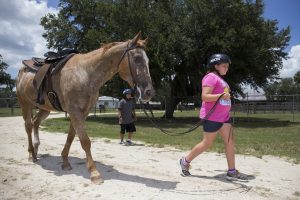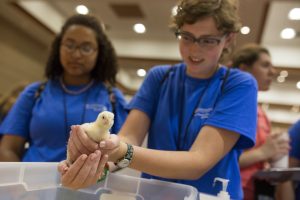
In 4-H, youth ages 5 and up have the opportunity to participate in both small and large animal projects. Through 4-H programs, raising animals helps kids develop important life skills. In 4-H, young people care for animals such as chickens, rabbits, goats, and horses, teaching them responsibility, leadership, money management, and empathy.
Responsibility and Time Management
One of the first lessons in 4-H is responsibility. Animals require daily care, including feeding, grooming, and health checks. This routine emphasizes the importance of hard work and consistency. Balancing these tasks with schoolwork helps kids learn effective time management.
Leadership and Communication
4-H also fosters leadership and communication skills. Many participants join competitions where they present their animals and share their knowledge. This practice builds confidence in public speaking and communication. Additionally, older members often mentor younger ones, enhancing their leadership skills.
Money Management and Business Skills
Raising animals entails costs for food, veterinary care, and equipment. Kids in 4-H learn budgeting and expense management. Some even sell their animals at auctions, gaining insights into marketing and sales, thus acquiring valuable financial and business skills.
Empathy and Emotional Intelligence
Caring for animals helps kids develop empathy and emotional intelligence. They bond with their animals and learn to understand their needs and behaviors. This relationship fosters compassion and patience, applicable in human interactions. Overcoming challenges in animal care also builds resilience.

Conclusion
In summary, raising animals in 4-H equips kids with a variety of life skills crucial for their future. From responsibility and time management to leadership, financial skills, and empathy, the lessons learned in 4-H prepare them to become well-rounded individuals ready to contribute to their communities.
For more information about all 4-H programs and projects in Extension, contact a local county agent or call our office in Brevard County, Florida, at 321-633-1702.
Sources:
Journal of Youth Development, “4-H & FFA Livestock Projects: Life Skills Gained and Knowledge Learned” by L. Holmgren and C. Reid, Utah State University, 2007. Link: https://jyd.pitt.edu/ojs/jyd/article/view/367/353
University of Florida/IFAS Extension, “Life Lessons Through Livestock” by D. Meringolo, 2021. Link: https://blogs.ifas.ufl.edu/lakeco/2021/11/12/life-lessons-through-livestock/
 1
1
